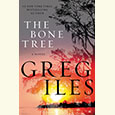A Fatal Gathering
Human traffickers bring harsh reality to a bachelor party in Chris Bohjalian’s latest novel
Chris Bohjalian dedicates his new novel, The Guest Room in part to the “girl in the lobby who was paying the bellman at three a.m.” Four paragraphs into the story, the reader will suspect that the intriguing hotel transaction the author cites could have been the girl’s desperate escape attempt.
 The Guest Room is a blunt introduction to the pitiless subterranean culture of sex slavery. As in his earlier books, The Guest Room concludes with an acknowledgments page that credits a list of experts—in this case their specialties range from “sex trafficking of underage girls” to “cadavers.” The novel’s victimized heroine is Alexandra, an aspiring ballerina from Armenia who was abducted at fifteen and held in a hotel where she is raped and stripped of her identity.
The Guest Room is a blunt introduction to the pitiless subterranean culture of sex slavery. As in his earlier books, The Guest Room concludes with an acknowledgments page that credits a list of experts—in this case their specialties range from “sex trafficking of underage girls” to “cadavers.” The novel’s victimized heroine is Alexandra, an aspiring ballerina from Armenia who was abducted at fifteen and held in a hotel where she is raped and stripped of her identity.
As the story begins, an investment banker who lives in a tony Manhattan suburb offers his “regal Tudor” home as the backdrop for his younger brother’s bachelor party. Two massive Russian bodyguards arrive with the entertainment—Alexandra and another woman, both so small the guests aren’t certain they are old enough to be there. By the time the party is over, the underage “talent” have left behind a case for the police, and detectives on the case have only the drunken men to interview: “The talent’s versions? The talent was gone. And those bodyguards? They were dead.”
The banker whose house becomes a crime scene is Richard Chapman. His wife and nine-year-old daughter are staying with his mother-in-law because the family expected the party to involve a stripper. Richard had imagined an almost wholesome event with a performance by a college student “making a little money for tuition,” but before the evening is over he will find himself compromising his marriage.
 In the days that follow the murder of the guards and the escape of the young women, the Chapmans maneuver around the bloody furniture in their living room. While they are trying to absorb the fallout from this violent incursion on their lives, the narrative intermittently turns to the story of the Armenian orphan Alexandra, whose kidnapper was a Russian. (Bohjalian, whose 2012 novel, The Sandcastle Girls, was set during the 1915 massacre of Armenians by the Ottoman government, again makes his affinity for Armenia clear in this sympathetic creation of the traffickers’ victims in The Guest Room.)
In the days that follow the murder of the guards and the escape of the young women, the Chapmans maneuver around the bloody furniture in their living room. While they are trying to absorb the fallout from this violent incursion on their lives, the narrative intermittently turns to the story of the Armenian orphan Alexandra, whose kidnapper was a Russian. (Bohjalian, whose 2012 novel, The Sandcastle Girls, was set during the 1915 massacre of Armenians by the Ottoman government, again makes his affinity for Armenia clear in this sympathetic creation of the traffickers’ victims in The Guest Room.)
Alexandra was taken to Moscow under the pretense that she will study ballet. “How do you break a teenage girl’s heart?” she asks in one of her soliloquies. “You take the teenage girl from the Moscow airport to a carefully selected Moscow hotel where you own or have rented all the rooms on a corridor. Then you rape her so violently that when you’re done, the girl just puts the sheet with the bloodstain in the gray plastic trash bag that was in the wastepaper basket, so that later she can secretly throw it away.”
As he did in his 1997 bestseller, Midwives, in which the daughter of a midwife tells the story of her mother’s prosecution after a woman dies in childbirth, Bohjalian creates an effective voice for his teenaged protagonist in The Guest Room. Both girls are battered by the cruelties of a world adults control but also seem believably resourceful.
While the Russian gangsters may be the villains of The Guest Room, the groom and his best friend are their callous enablers. Richard’s brother can’t bother to parse the difference between prostitutes and sex slaves. “They were hookers who killed some mobster jerks. This isn’t, I don’t know, a bazillion starving children somewhere in Africa,” he tells Richard. And the friend who hired the entertainers calculates that it would be in his own best interest if the mobsters kill the girls before the police find them. It “would, I must admit, decrease dramatically that whole underage issue thing they’re holding over my head,” he says.
Bohjalian’s novel is a tightly constructed, sex-and-violence-driven thriller, but it’s also a check to the convenient ignorance indulged in by American consumers—of entertainment as well as goods.

Peggy Burch was books editor at The Commercial Appeal in Memphis for ten years, and she also worked as a deputy metro editor and Arts & Entertainment editor for the newspaper. She is a graduate of the Newhouse School of Public Communications at Syracuse University and holds a master’s degree in English literature from the University of Mississippi.


